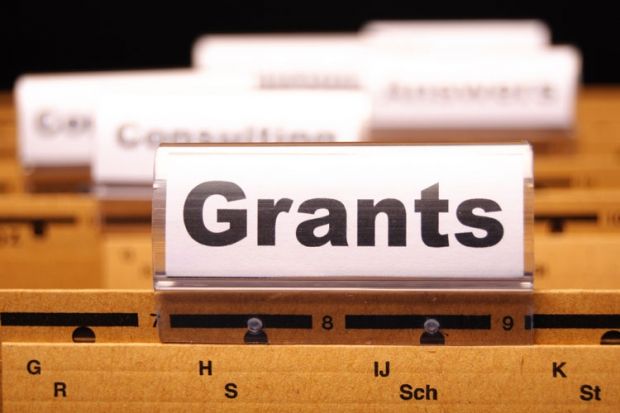Leverhulme Trust
Research Project Grants
Sciences
- Award winner: Gabriel Yvon-Durocher
- Institution: University of Exeter
- Value: £290,658
The molecular mechanisms of thermal acclimation and adaptation in marine algae
- Award winner: Christoph G. Salzmann
- Institution: University College London
- Value: £119,421
Mixtures of large hydrophobes and amorphous ice: new directions in ice research
National Institute for Health Research
Health Services and Delivery Research Programme
- Award winner: Alison Eastwood
- Institution: University of York
- Value: £508,461
HS&DR evidence synthesis centre/team
- Award winner: Helen Hogan
- Institution: London School of Hygiene and Tropical Medicine
- Value: £383,865
Avoidable mortality from in-hospital cardiac arrest: have interventions aimed at recognising and rescuing deteriorating patients made an impact on incidence and outcomes?
- Award winner: Justin Keen
- Institution: University of Leeds
- Value: £382,441
Information systems: monitoring and managing from ward to board
Action Medical Research
Project grants
- Award winner: Christoph Tang
- Institution: University of Oxford
- Value: £199,991
Protecting more children from meningitis by developing a new MenB vaccine
- Award winner: Nick Europe-Finner
- Institution: Newcastle University
- Value: £183,040
Premature birth: how to stop women from going into labour too soon
- Award winner: Colin McCaig
- Institution: University of Aberdeen
- Value: £191,577
Cataracts: could a new approach to surgery improve children’s vision?
Arts and Humanities Research Council
- Award winner: Gill Valentine
- Institution: University of Sheffield
- Value: £867,356 (AHRC contribution)
Intergenerational justice, consumption and sustainability in comparative perspective
In detail

Award winner: Georgina Endfield
Institution: University of Nottingham
Value: £848,683 (AHRC contribution)
Spaces of experience and horizons of expectation: the implications of extreme weather events, past, present and future
There is growing concern over the impact of interannual climate variability and anomalous and “extreme” weather events such as droughts, floods, storms and unusually high or low temperatures. This project will examine the nature, timing and socio-economic and cultural consequences of, and responses to, climatic extremes in the UK, looking at case studies between 1700 and the present. This study will employ a combination of archival investigation and oral history approaches in order to reconstruct episodes of extreme weather and to explore whether and how these events affected the lives of local people and became inscribed into the cultural fabric and social memory of selected local communities within the case study regions. The project will also explore how the recording of these events has changed over time and is still changing.
Register to continue
Why register?
- Registration is free and only takes a moment
- Once registered, you can read 3 articles a month
- Sign up for our newsletter
Subscribe
Or subscribe for unlimited access to:
- Unlimited access to news, views, insights & reviews
- Digital editions
- Digital access to THE’s university and college rankings analysis
Already registered or a current subscriber? Login

